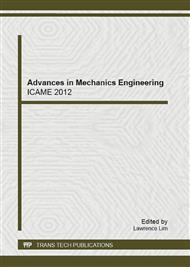p.2026
p.2030
p.2034
p.2038
p.2042
p.2046
p.2051
p.2055
p.2060
Research on the Relationship among Technological Progress, Rebound Effect and Energy Efficiency
Abstract:
On the basis of research in foreign countries on the relationship among technological progress, rebound effect and energy efficiency, the paper mainly from the following two aspects to study relationship among technological progress, rebound effect and energy efficiency in China. First of all, it studies mechanism of rebound effect on the basis of technological progress. It is mainly from the direct rebound effect, indirect rebound effect and economy-wide rebound effect of energy efficiency for the analysis of the mechanism of action. Secondly, it studies both theoretical research and empirical analysis on rebound effect based on technological progress relationship with energy efficiency. Based on the actual situation in China, it researches "Jevons paradox" led to the relationship between rebound effect and energy efficiency both theory analysis and empirical test. Through the above study, we expect to offer useful references for China’s research on the relationship among technological progress, rebound effect and energy efficiency.
Info:
Periodical:
Pages:
2042-2045
Citation:
Online since:
November 2012
Authors:
Keywords:
Price:
Сopyright:
© 2012 Trans Tech Publications Ltd. All Rights Reserved
Share:
Citation:


